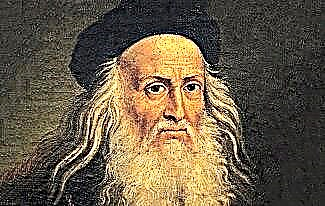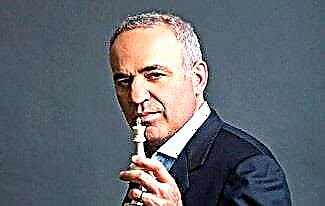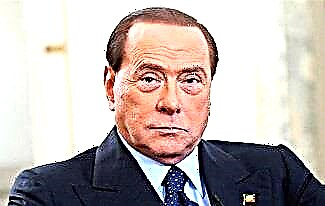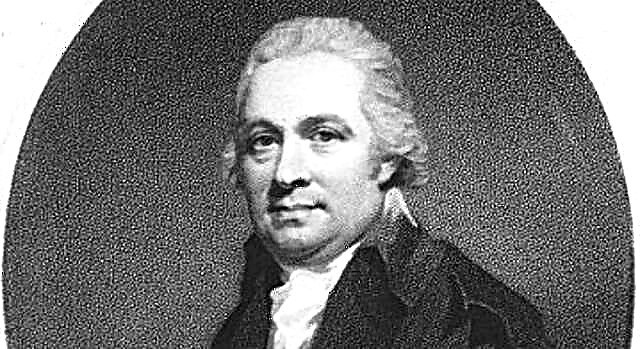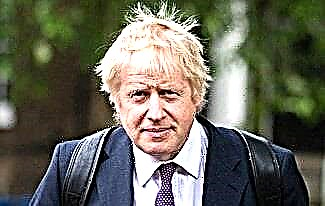Pol Pot (short for French name Salot Sar; 1925-1998) - Cambodian political and statesman, General Secretary of the Central Committee of the Communist Party of Kampuchea, Prime Minister of Kampuchea and leader of the Khmer Rouge movement.
During the era of Pol Pot's rule, accompanied by massive repressions, from torture and hunger, from 1 to 3 million people died.

There are many interesting facts in the biography of Pol Pot, which we will talk about in this article.
So, here is a short biography of Salot Sarah.
Biography of Pol Pot
Pol Pot (Salot Sar) was born on May 19, 1925 in the Cambodian village of Prexbauv. He grew up and was raised in a Khmer peasant family of Peka Salota and Sok Nem. He was the eighth of 9 children of his parents.
Childhood and youth
Pol Pot from an early age began to receive a quality education. His brother, Lot Swong, and his sister, Salot Roeng, were brought close to the royal court. In particular, Roeng was the concubine of the monarch Monivong.
When the future dictator was 9 years old, he was sent to Phnom Penh to stay with relatives. For a time he served in a Buddhist temple. During this period of his biography, he studied the Khmer language and the teachings of Buddhism.
After 3 years, Pol Pot became a student of a Catholic school, which taught traditional disciplines. After graduating from an educational institution in 1942, he continued his education in college, having mastered the profession of a cabinet-maker.
Then the young man studied at the Technical School in Phnom Penh. In 1949, he received a government scholarship to pursue higher education in France. Upon arrival in Paris, he researched radio electronics, meeting many of his fellow countrymen.
Soon Pol Pot joined the Marxist movement, discussing with them the key work of Karl Marx "Capital", as well as other works of the author. This led to the fact that he was so carried away by politics that he began to devote little time to studying at the university. As a result, in 1952 he was expelled from the university.
The guy returned home already a different person, saturated with the ideas of communism. In Phnom Penh, he joined the ranks of the People's Revolutionary Party of Cambodia, engaging in propaganda activities.
Politics
In 1963 Pol Pot took over as Secretary General of the Communist Party of Kampuchea. He became the ideological leader of the Khmer Rouge, who were armed rebels who fought the royal army.
The Khmer Rouge is an agrarian communist movement based on the ideas of Maoism, as well as rejection of everything Western and modern. The insurgent units consisted of aggressively minded, poorly educated Cambodians (mostly teenagers).
By the early 70s, the Khmer Rouge outnumbered the capital's army. For this reason, Pol Pot's supporters decided to seize power in the city. As a result, the militants brutally dealt with the residents of Phnom Penh.

After that, the leader of the rebels announced that from that time on, the peasants would be considered the highest class. As a result, all representatives of the intelligentsia, including teachers and doctors, should have been killed and driven out of the state.
Renaming the country to Kampuchea and taking a course on the development of agricultural activities, the new government began to implement ideas into reality. Soon Pol Pot ordered to give up the money. He ordered the construction of labor camps to carry out the work.
People had to do difficult work from morning to evening, receiving one cup of rice for this. Those who violated the established regime in one way or another were subjected to harsh punishment or execution.
In addition to repressions against members of the intelligentsia, the Khmer Rouge carried out racial cleansing, claiming that either Khmers or Chinese could be reliable citizens of Kampuchea. Every day the population of the cities was decreasing.
This was due to the fact that Pol Pot, inspired by the ideas of Mao Zedong, did everything possible to unite his compatriots into rural communes. An interesting fact is that in such communes there was no such thing as a family.
Brutal torture and executions became commonplace for Cambodians, and medicine and education were virtually destroyed as unnecessary. In parallel with this, the newly minted government got rid of various benefits of civilization in the form of vehicles and household appliances.
Any form of religion was banned in the country. The priests were arrested and then subjected to radical repression. Scriptures were burned in the streets, and temples and monasteries were either blown up or turned into pigsties.

In 1977, a military conflict with Vietnam began, caused by border disputes. As a result, after a couple of years the Vietnamese captured Kampuchea, which turned into ruins during the 3.5 years of Pol Pot's rule. During this time, the population of the state has decreased, according to various estimates, from 1 to 3 million people!
By the decision of the Cambodian People's Tribunal, Pol Pot was recognized as the main culprit of the genocide and sentenced to death. However, the dictator managed to make a successful escape, hiding in a helicopter in the rugged jungle.
Until the end of his life, Pol Pot did not admit his involvement in the crimes committed, stating that he "pursued a policy of national welfare." The man also declared his innocence in the deaths of millions, explaining this by the fact that not a single document was found where he ordered to kill citizens.
Personal life
Pol Pot's first wife was the communist Khieu Ponnari, whom he met in France. Khieu came from an intelligent family, specializing in the study of linguistics. The lovers got married in 1956, having lived together for about 23 years.
The couple separated in 1979. By that time, the woman was already suffering from schizophrenia, although she continued to be considered the "mother of the revolution." She died in 2003 from cancer.

The second time Pol Pot married Mea Son in 1985. In this union, the couple had a girl named Sita (Sar Patchada). After the death of the dictator in 1998, his wife and daughter were arrested. Once they were released, they were often persecuted by their compatriots, who had not forgotten Pol Pot's atrocities.
Over time, Mea remarried with a Khmer Rouge man named Tepa Hunala, thanks to which she found peace and a comfortable old age. The dictator's daughter got married in 2014 and currently lives in Cambodia, leading a bohemian lifestyle.
Death
Pol Pot's biographers still cannot agree on the true cause of his death. According to the official version, the dictator died on April 15, 1998 at the age of 72. He is believed to have died due to heart failure.
However, forensic experts said that Pol Pot's death was due to poisoning. According to another version, he died in the jungle from illness, or took his own life. The authorities demanded that the body be provided for a thorough examination and confirmation of the fact that the death was not a fake.
Without looking at it, the corpse was cremated a few days later. Years later, pilgrims began to come to the place of the communist's cremation, praying for the repose of Pol Pot's soul.
Photo by Pol Pot







